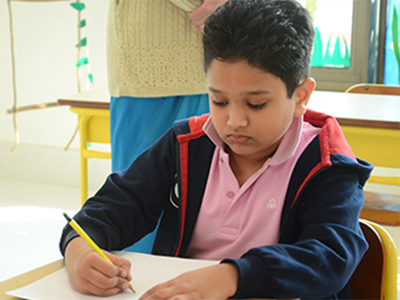
Our world is exploding with information! There is too much to consume – whether in the form of text, pictures, audio or video. 21st century is teeming with exciting information, but much of it keeps slipping away from the mind. The brain, after all, has its limits.
How then, do we ensure, that our children retain and recall data that is critical for them? How do we ensure that their brain remains healthy and their memory strong?
The role of memory is not limited to remembering data once fed to the brain. It also includes holding together a complicated mass of tasks which your child may be expected to perform simultaneously (which uniform to wear today, what all books to keep in the bag, what to have for breakfast, what time is it, when is the bus due, where are their shoes kept, etc.). Knowledge delivery is also based upon remembering key concepts learned in previous classes while getting introduced to more complicated topics in higher grades. Phew! There is so much that we expect out of the short-term and long-term memory of our children.
In context to the above, here are a few tips and tricks to help children enhance their memory, and add to its strength, flexibility, and vitality.
- Visual Aids
For the youngest of learners, visual aids, like flashcards and colour coded information, have proven to be extremely effective in helping retain data. The 21st century, in fact, is a world driven by visual stimulus. When a data chunk is supplemented with a visual, the brain is able to process and retain it better. This is the reason why highlighting important text with different colours helps us remember passages from books. - Memory Games
There are a number of games that can help exercise the brain. They can be as simple as remembering the position of playing cards to creating complex memory palaces. Invent new games that fit into daily life. For example, while going out on a drive, ask your child to observe all the billboards and ask each other questions about what you saw on the way back! - Mnemonics
Learning can be made fun by using some time-tested tricks like mnemonics. It is difficult to remember all the colours of the rainbow for a young student – but give them the acronym VIBGYOR and see them rattle out the names of all the colours while ensuring their proper order. Even better, build mnemonics with your children.This will not only help them retain information, butalso aid in building creative thinking skills. - Lifestyle
A healthy mind can only reside in a healthy body. The body needs to be nurtured with a nutritious diet, regular meal and sleep plans, and physical exercise. Lethargy in the body affects the brain adversely. A mind which doesn’t reside in a positive, happy body cannot be expected to perform to the optimum. There are also certain foods, like berries, which are considered effective in boosting memory. Try them out! - Meditation
The power of meditation cannot be overstated. It helps build greater concentration and focus. It calms down a chaotic mind, thus increasing its capacity for storing and processing information. Not only that, but a calm mind is also able to consolidate multiple packets of information well. Help your child practice meditation.
While we do remember to feed and treat our body well, the brain often escapes notice. In their formative years, where basic ideas and knowledge are seeping into their brains, children need to have a large capacity for storing information. The above tips and tricks can come in handy while trying to give a booster shot to our children’s memory.




